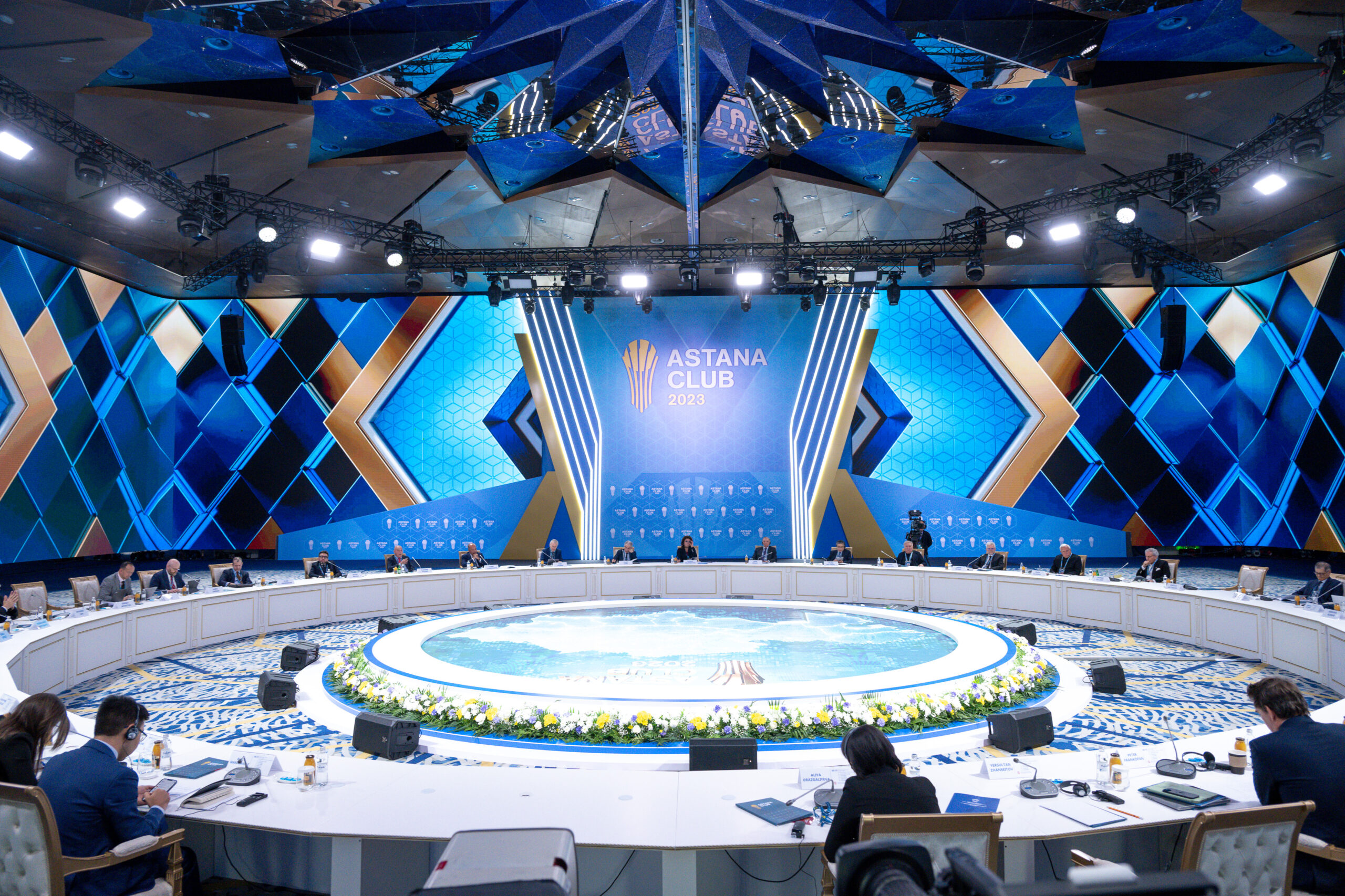ASTANA – The first day of the Astana Club, a platform to discuss the most pressing issues on the global and regional agenda, kicked off in the Kazakh capital on Dec. 11. Rising economic fragmentation, the future of Central Asia and Afghanistan and what stands ahead for the Middle East were among the topics on the agenda.

Photo credit: Astana Club.
This year’s edition convened more than 40 speakers, including from Belgium, China, India, Russia, Spain, Türkiye and the United States, among others. Organized by the Institute of World Economics and Politics (IWEP) since 2015, the mission of the Astana Club is to explore global trends and suggest solutions to the challenges facing Eurasia and beyond.
While the world may be torn by crises and turbulence, Kazakhstan has economic opportunities to capitalize on, but only if it makes the right economic and investment decisions, said Vice President for Studies at Washington-based Carnegie Endowment for International Peace Evan Feigenbaum.
“There can be some very considerable opportunities notwithstanding the risks,” Feigenbaum told The Astana Times.
He said the world witnesses a transition from one that many people thought was about economic opportunities and economic integration toward a world that is increasingly about security, fragmentation, and conflict among countries.
“That has big implications for Kazakhstan, which has big ambitions for economic development,” he added.
“There are a lot of multinational companies that are leaving Russia, but looking for opportunities first to situate headquarters, but for an investment-friendly climate, to base their operations, so actually out of geopolitical turbulence between Russia and the West is an opportunity for Kazakhstan to attract more investment, and also for multinational companies to headquarter,” said Feigenbaum.
Data from the Kazakh Foreign Ministry indicated, as of May, 25 companies from Russia have relocated their operations to Kazakhstan, and more followed them later.
On the same note, Kazakhstan also benefits from Chinese investments. China is among the top five largest investors in the Kazakh economy.
“For Kazakhstan’s own development, it is important to extract more of the value added and have China leave investment in Kazakhstan that creates more jobs and opportunities for people in Kazakhstan,” he added.
Initially an academic with a PhD in Chinese politics from Stanford University, Feigenbaum also shared his insights into the developments in Asia. According to him, the tension between economic integration and security fragmentation is a big challenge.
“I think the answer to that is in part for countries to navigate that competition between the United States and China by working together sometimes without the United States and China to build economic agreements, trade deals, pacts that really set the region on a course where economics rather than security drives the future,” he said, highlighting the Comprehensive and Progressive Agreement for Trans-Pacific Partnership, as an example.
Climate change
Rae Kwon Chung, Nobel Peace Prize Laureate of 2007 and member of the UN Intergovernmental Panel on Climate Change (IPCC), said Central Asia is facing increasing risks from climate change.
“Central Asia is now expected to be suffering the most severe climate disaster because the expected temperature rise will be quite high in Central Asia, the Middle East and North Africa. These are the regions where the most of the impact of climate change will be the hardest, including Kazakhstan,” he said in a comment for this story, warning that Kazakhstan has to be prepared.
The nation, which has heavily relied on fossil fuels for years, committed to achieving carbon neutrality by 2060.
At the 2023 United Nations Climate Change Conference, more known as COP28, Kazakhstan also voiced key initiatives, including joining the Global Methane Pledge, a voluntary agreement by more than 150 countries to cut their methane emissions by 30% by 2030. The nation also inked substantial renewable energy deals.
“Making a pledge is easy, but taking action is a different story not only for Kazakhstan but for many countries. We have been making pledges throughout the last three decades of climate history, but we have been failing to keep and deliver our promises. We have to focus more on how we can actually take action,” said Rae Kwon Chung.

